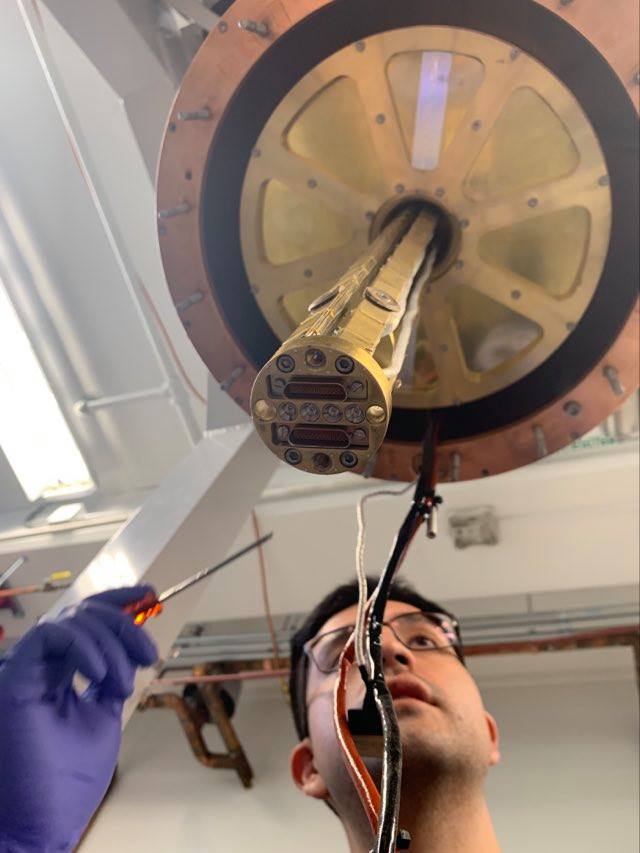I did my Ph.D. in the Electrical and Computer Engineering department at Princeton University.
During my Ph.D. I worked extensively with dilution refrigerators. These dilution refrigerators are the staple instrument to house a few technologies of quantum computers such as superconducting and spin qubits. I also worked with electronic instrumentation, quite similar to the one used to operate qubits, to do measurements close to absolute zero temperature. (For the more technical discussion, most of the measurements I did were in the few Hz regime - qubits usually operate between MHz and GHz).
I have also ventured a little bit into Qiskit. Here you can find the details and the quantum code that I wrote regarding the Heisenberg model implemented in Qiskit.
My Ph.D. field of study has an intersection with quantum computing, and its called 'topological quantum computing'. In the samples that I studied, I had access to the exotic '5/2 fractional quantum Hall state', which carries the promise to have the right ingredients for us to make quantum computing operations. I have had the opportunity to measure the new world record of the '5/2-state' energy gap in a sample grown in the best MBE-group in the world lead by Loren Pfeiffer - my results were published in Nature Materials. In my research group, I helped with the initial prototypes of interferometers to study the delicate '5/2-state'
My thesis adviser was Prof. Mansour Shayegan and my field of study was "experimental condensed matter physics".
For the academics, here is my google scholar profile (click here).
